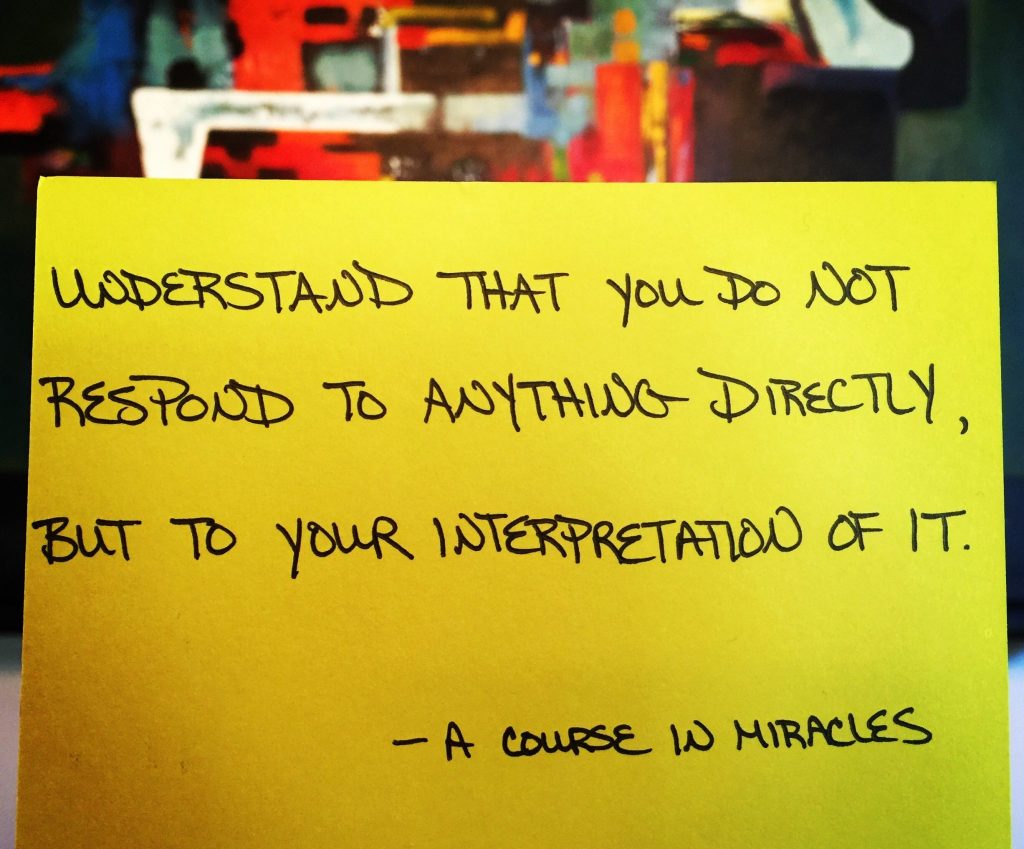Engaging in and resolving difficult conversations is a necessary skill for any great leader and successful relationship. A lot of research has been done on helping individuals navigate these conversations more effectively but we need to help leaders understand why they happen in the first place. Understanding WHY can help you know HOW to engage in these conversations better.
As a student and teacher of A Course in Miracles I’ve always resonated with the following thought, and I believe it provides some insight into why we experience conflict:

WHY CONFLICT HAPPENS:
- You create an interpretation of a person’s words and/or actions
- Your interpretation then becomes your experience of the truth
- Your truth gets filtered through the lens in which you see the world
- Your lens fuels your response
Our response, often times, has more to do with us then it does with the other person. You tend to see in others what you do not like and refuse to see in yourself. Below are a few critical questions to always ask yourself before responding:
- What can this person or situation teach me about myself?
- What story am I creating about this person’s intentions?
- Why is this really bothering me as much as it does?
Answering those questions might offer you a different perspective and interpretation. They will also help you go into a difficult conversation with the desire to understand versus trying to be right.
HOW TO ENGAGE IN HEALTHY CONVERSATIONS:
- Use your presence to make the conversation safe
- Share your goal of the conversation & find mutual purpose
- Honor each other’s “experience” of the truth (this doesn’t mean you agree with it)
- Take the necessary time to explore the interpretations each other created
- Establish new boundaries you can both agree to moving forward
All leaders must take accountability in resolving conflict. However, your rigid interpretations of the truth will hold you back. You are a demonstration of what you believe and how you want others in the organization to treat each other. Give yourself permission to analyze your own interpretations and hear, not just listen to, the interpretations of others. It is in this space that we learn to lead and communicate with stronger impact and credibility.


